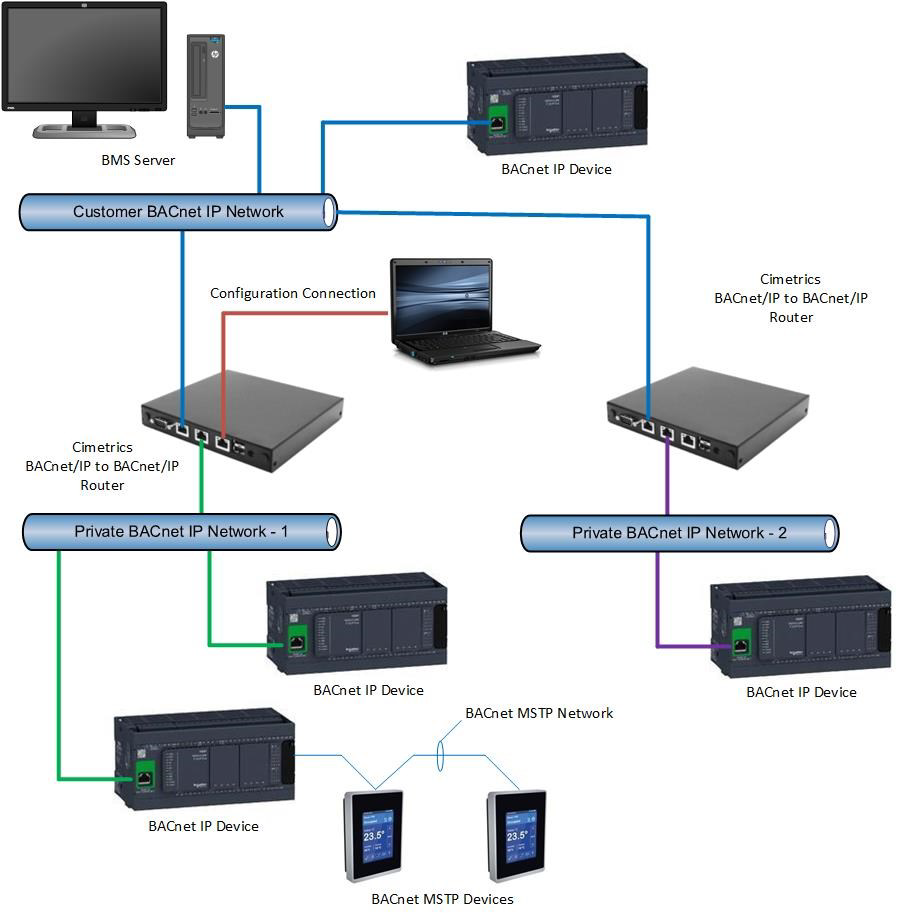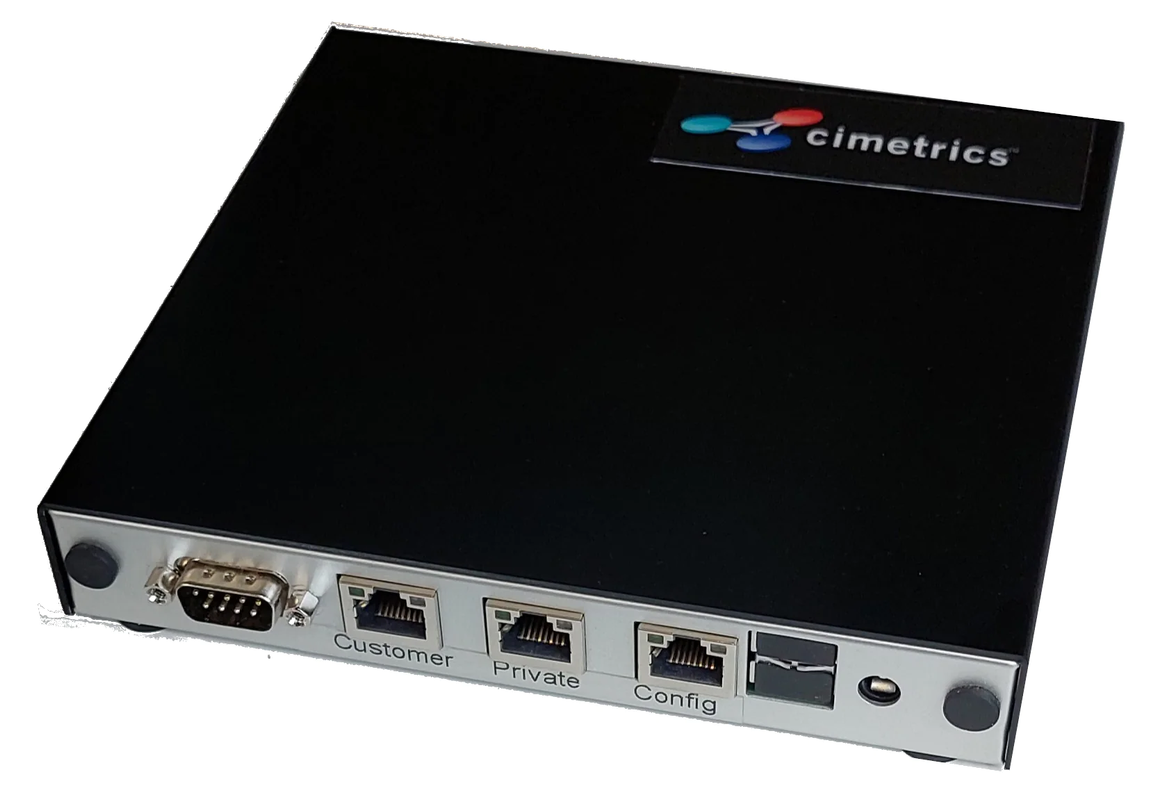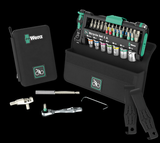B3075 – Cimetrics B/IP to B/IP BNSD
The B3075 is a second-generation BACnet/IP to BACnet/IP Network Segmentation Device (BNSD) that enables BACnet communication between two physically separate IP net-works. It is designed to meet the requirements of demanding customers with a large number of BACnet/IP devices. The Network Segmentation Devices include new management, diagnostics, and remote event logging functionality that can be selectively enabled. Based on the Cimetrics BACstacTM, the standalone BNSD can reliably process a high volume of net-work traffic.
FEATURES
• Three Ethernet ports: Two for BACnet segmenting and a dedicated port for configuration.
• 1 IP address from IT (Fixed or DHCP) on “ Customer” port of the Network Segmentation Device, connects up to 250 BACnet/IP devices on the “Private” network.
• Network Segmentation Device passes only BACnet UDP traffic. All non BACnet traffic is blocked. IT has no visibil-ity of Private network.
• Support for OpenVPN Community Edition enables non-BACnet communication with devices on the “Private” Ethernet network from the “Customer” Ethernet network.
• Wireshark-compatible packet captures on both BACnet interfaces simultaneously.
• Supports HTTPS communication for secure browser-based configuration.
• U.S. General Services Administration approved.
BACnet DETAILS
• BACnet message routing as defined in Clause 6.6 of ANSI/ASHRAE Standard 135, Protocol Revision 16
• BACnet/IP communication on two Ethernet ports
• Optional BBMD with Foreign Device support on customer port
HARDWARE SPECIFICATIONS
| Power Adapter Input Voltage | 100—240 VAC, 50-60 Hz |
| Operating Temperature | 0 to 40 C |
| Storage temperature | -30 to 50 C |
| Power consumption | 12 VDC, 10 watts typical |
| Dimensions | 15.8 x 16 x 2.5 cm |
| Weight | 450 g |
| Ethernet Ports | (3) 10/100/1000 Mbps |
| Approvals | FCC Class A, CE |
| Router Enclosure | Metal |
TYPICAL APPLICATION SCENARIOS
The B3075 application scenarios:
Customer’s IT department cannot allocate enough IP addresses on the IT network for the BACnet/IP devices.
Certain BACnet/IP devices should not reside on the same IP network with customer’s IT systems for technical or policy reasons.
Customer’s IT department will not allow UL864 switches or daisy chained and ring connect devices to connect to the IT managed network.
Deploy Your Network — BACnet/IP to BACnet/IP Network Segmentation:
Cimetrics BACnet/IP to BACnet/IP Network Segmentation Device routes BACnet packets between two separate IP networks. A typical deployment scenario is shown below, in which there are multiple IP networks containing BACnet-compliant devices that need to communicate with one another, and many of the BACnet devices are connected to one or more private IP networks utilizing private IP addresses.

Recent Posts
-
WERA Advent calendar 2025, 28 pieces
The 2025 Wera Advent calendar includes a comprehensive screwdriving workshop for the most common sc …2025 Nov 19th -
Wera Bicycle tool set
Bike tool set with ratchet, bits, sockets and a bitholding screwdriver in the very compact Tool-Che …2025 Jul 24th -
DUCT CARBON DIOXIDE TRANSMITTER
The duct CO2transmitter uses a highly accurate andreliable non-dispersive infrared (NDIR) sens …2025 Apr 3rd


